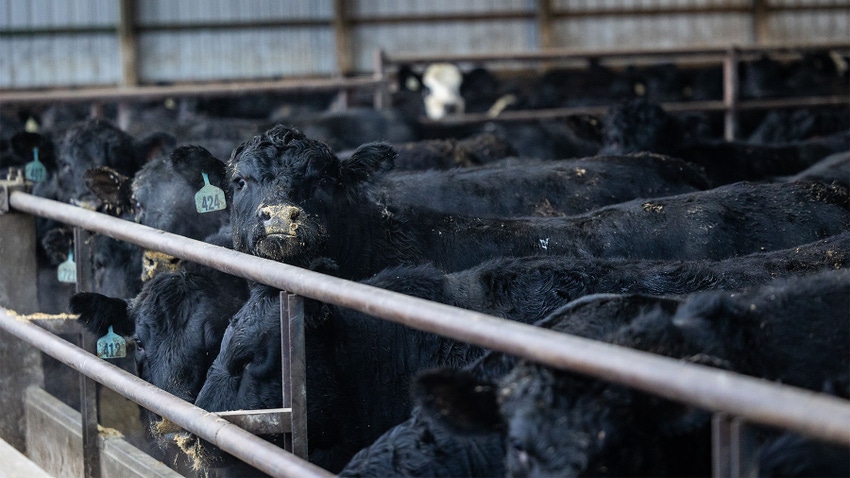March 29, 2024

On March 21, the U.S. Senate passed a resolution to block beef imports from Paraguay with overwhelming bipartisan support on a 70-25 vote. The resolution comes in response to USDA’s Animal and Plant Health Inspection Service November rule to allow Paraguayan beef imports. Next, the House of Representatives will vote on the rule.
What do fresh beef imports from Paraguay mean for U.S. farmers and ranchers? Prairie Farmer sat down with Kent Bacus, National Cattlemen’s Beef Association executive director of governmental affairs, for answers.
What cuts are imported from Paraguay? It’s only beef, not live animals. It’s primarily lean trimmings, mostly used for ground beef. Our concerns are not from a competition standpoint, because they’re somewhat limited in what they can send here. But this is about the health of our herd, as foot-and-mouth disease can be transmitted to the U.S. from fresh meat cuts. There hasn’t been a foot-and-mouth disease outbreak on U.S. soil since 1929. In contrast, Paraguay’s last reported foot-and-mouth disease outbreak was in 2012.
What are NCBA’s concerns about Paraguay’s beef imports? Given Paraguay’s history of foot-and-mouth disease, we feel that there should be increased scrutiny for any beef that could come from that market. This creates an unnecessary risk for the U.S. cattle herd, so we’ve asked USDA to intervene and stop Paraguay’s imports from entering the U.S.
Eighty-five percent of the beef that’s consumed in the United States is U.S. beef. That creates a responsibility to make sure that that reputation is protected. When you have countries that have a questionable track record, we have concerns that it could undermine the integrity of the entire U.S. system.
How was Paraguay approved for U.S. beef imports? For Paraguay to gain access to the U.S. market, they had to be approved by both the Food Safety and Inspection Service and the Animal and Plant Health Inspection Service. FSIS conducted some recent audits on the entire postharvest production chain. They declared that Paraguay could provide an equivalent level of safety and imposes a minimal risk to the U.S. supply chain.
APHIS also conducted a risk assessment, but it was based off site visits from 2008 and 2014. In 2017, APHIS developed very strict protocols for how to conduct on-the-ground visits. In the years that these site visits occurred, we don’t know what protocols were followed, or the scientific nature of the audits that were conducted.
What additional considerations should USDA make? We’ve asked USDA to pause this approval process and conduct new in-person site visits to confirm Paraguay’s safety measures. A lot has happened over the last several years with Paraguay. Their economy suffered tremendously from COVID-19 and the global recession that followed.
Eighty-five percent of Paraguay’s foot-and-mouth disease mitigation measures are funded from the private sector, not the government. There are concerns of whether they can continue to fund the level of safety they claimed when USDA considered in their risk assessment.
Why was Paraguay approved? They’ve had an import application in with USDA for about 18 years. They finished the approval process this year — even though they’ve had foot-and-mouth disease throughout that time. As with many trade partners, they want to have the USDA stamp of approval. We have the highest standards in the world, so it’s not that these countries want to just sell all their beef here. They want the opportunity to say, “If this is good enough for the U.S. market, it should be good enough for yours.”
Are there any testing or process changes that would make you comfortable with Paraguayan beef on American tables? For the past year, NCBA raised serious concerns with USDA’s approval process and the accuracy of the information used to justify Paraguay’s approval. In fact, NCBA strongly discouraged USDA-APHIS from proceeding with Paraguay’s approval until USDA conducted new site visits to confirm Paraguay’s claims, and for USDA to complete an updated risk analysis based off recent official site visits. NCBA also requested USDA provide stakeholders time to review the results of the recent site visits to better understand the risks associated with Paraguayan beef imports.
A truly science-based process should follow the most recent and relevant information, and it is alarming that USDA-APHIS would base a significant decision like this without relying on more recent data. Wisdom tells us to trust but verify.
What’s next? There are several members of Congress, both Republicans and Democrats, who are pretty upset about this and have voiced their concerns with USDA. Unfortunately, the Biden administration hasn’t listened to our concerns and is not taking the steps we’ve recommended. There are unanswered questions about their access to the U.S. market that we simply cannot ignore.
The fact that 70 U.S. Senators voted in support of the resolution to overturn Paraguay’s beef access proves there are enough votes to overturn a presidential veto. It is likely that similar support will be demonstrated in the House. That strong, bipartisan support further proves that Congress is ready to prioritize cattle producer concerns over diplomatic gains. We should learn more about next steps when Congress returns from Easter recess.
About the Author(s)
You May Also Like






